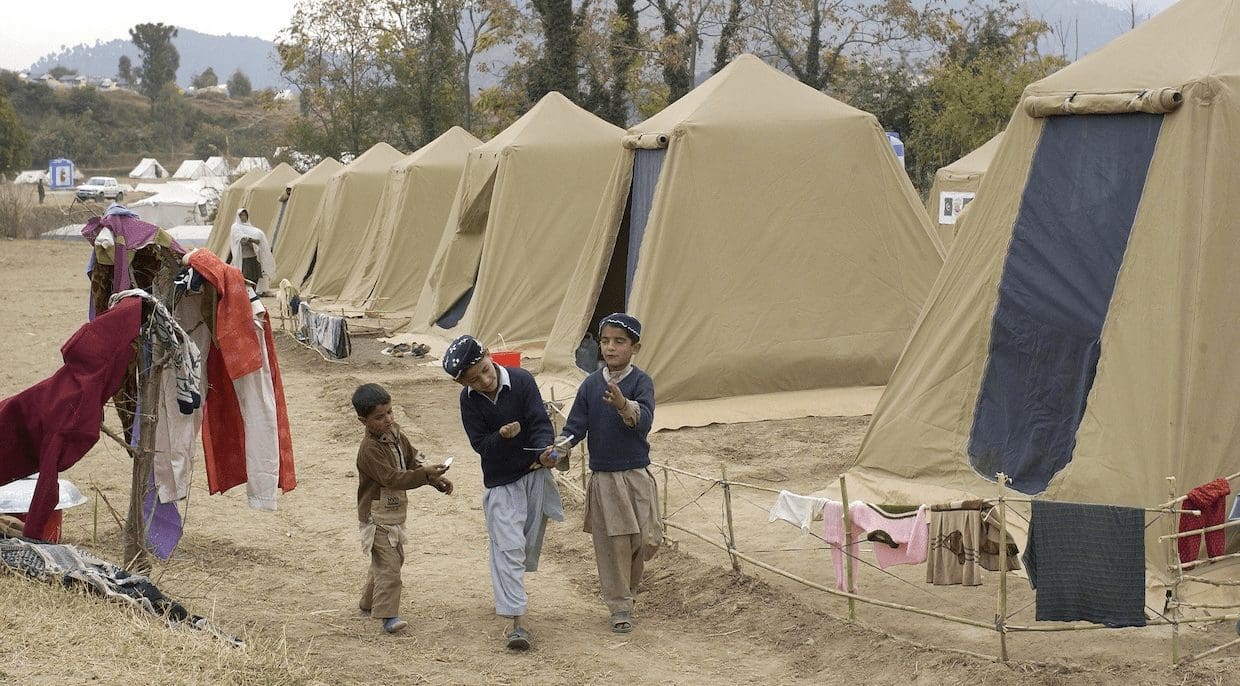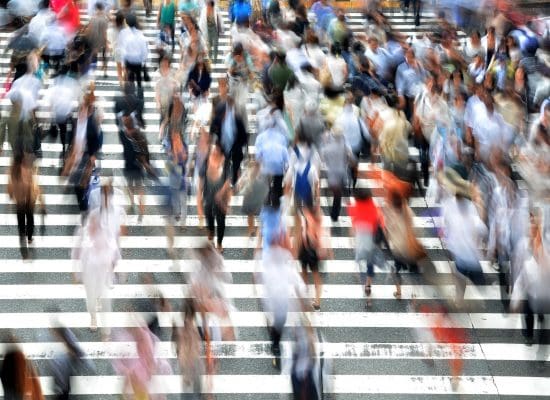Featured photo: Refugee camp in Shinkiari, Pakistan | © Pixabay
Apart from the last major wave of emigration to the USA before the Second World War, our society is more likely to remember the flight movements of 'ethnic Germans' to the free part of Germany at the end of the Second World War. These came from the former settlement or national territory of Germany, which at the end of the war increasingly came under the influence of the then Soviet Union and became the property of other countries.
Even then it could be observed that the more politically minded people were moving on to areas that were under the protection of democracies, the Western powers of the time; that is, Germans from the Russian-occupied zone of Germany also moved to the Federal Republic. It was also observed that other population groups who also did not want to be influenced by the Soviet system fled with the 'ethnic Germans'. What led to increased defensive reactions in the receiving population even then and has not changed significantly to this day; Among other things, the term 'backpack German' probably came into being.
Even after the new political structures had consolidated and the Cold War raged, there were still further migration movements from East to West. The motivation of the migrants was, on the one hand, the desire for freedom, the desire to be able to develop freely in an open society, and, on the other hand, the mere desire for an economically better life.
In these 40 years, when those who also wanted to escape the Soviet terror, with few exceptions, were already living in the West in 1989, the following could be observed among the immigrants. Those who fled for political reasons tried to integrate into their new home as quickly as possible and participated very successfully right from the start. Those who were primarily concerned with economic improvement, on the other hand, wanted to live in an open society and, above all, in a social market economy, but they wanted to keep their old way of life as far as possible, ergo, achieve change without change. In my opinion, these fellow human beings do not fail because of society, but always because of themselves!
To make matters worse, starting with the 'guest workers', numerous new parts of the population were invited without demanding integration or even participation from them, tempting them to want to be better off economically but otherwise want to leave everything as it was . In this way, parallel societies were created by these two types of economically motivated immigrants – although I do not regard their motives for migration as reprehensible at all – depending on their origin.
These parallel societies, with their life models that are often completely antiquated for our open society and economically not very successful, are also what cause their members and involuntary relatives to fail to this day, and also ensure that our open society as a whole is increasingly threatened.
As long as our economy is flourishing, one can ignore these serious discrepancies and counteract the negative effects with supposed tolerance, but only as long as sufficient prosperity can be generated for everyone.
It is now becoming increasingly apparent, however, that the sections of the population that actually make up the open society, support it and are also largely responsible for its economic success, are less and less willing to bear the costs of an open society on their own.
The exclusive consumer behavior of most parallel societies and also the increasingly observable refusal of the population as a whole gives rise to fears that the achievements of our open society are slowly but surely falling behind and the very existence of our society is being called into question.
Therefore, one must show all fellow citizens as quickly as possible that an open society and its economic success depends on the participation of the large majority of the population and that migration also brings advantages for everyone, as long as the immigrants not only integrate into our open society, but also participate in it .
That's why you have to sanction it as soon as people living here with us refuse the open society, regardless of a migration background. The latter has in the case of a participation and refusal to integrate But the big advantage is that you can't oblige anyone to live here with us, and they can easily move back or move on to companies that correspond to their actual wishes.
“Because without free exchange of ideas there can be no real freedom of thought. We need others to test our thoughts on; to find out if they are valid. The critical discussion is the basis of the free thinking of the individual.”
Karl Popper, All Life Is Problem Solving: On Knowledge, History, and Politics (2005:164)





